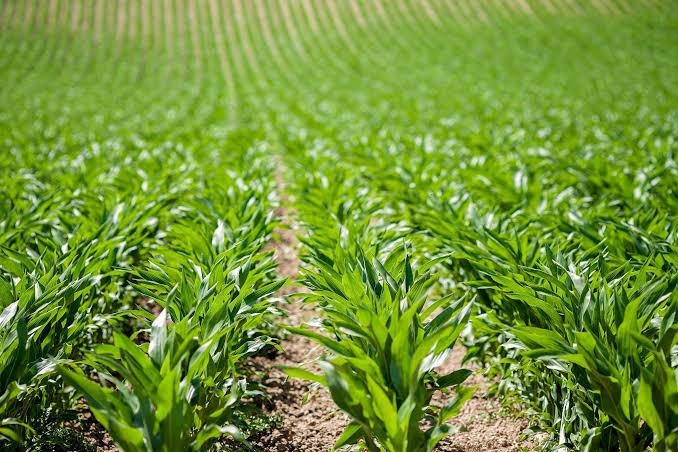ActionAid Nigeria has urged the Federal and State Governments to enhance the country’s agricultural sector and adopt a budget that will not be undermined by poor governance.
This was the fallout of the National Stakeholders Consultative Forum on the 2025 Agriculture Budget, hosted by ActionAid Nigeria in collaboration with GIZ, Oxfam Nigeria, the Ministry of Budget and Economic Planning, the Federal Ministry of Agriculture and Food Security, the Department of Agriculture and Rural Development and the ECOWAS Commission.
At the three-day event, which was held from July 29 to 31, 2024, participants called on the federal and state executives, the National Assembly and the state Houses of Assembly to scale up public investment in agriculture and ensure timely consideration, passage, and timely budget releases and utilisation as a strategic approach to increase food production, reduce hunger and poverty, and achieve the Maputo/Malabo Commitments.
They suggested aligning the national agricultural transformation and innovation policy with the targets and indicators of the biennial review to ensure Nigeria meets the Malabo Commitments.
“As approved by the 44th National Council on Agriculture and Rural Development; the three tiers of government should commit 10 per cent of their annual budget to the agriculture sector to meet the 10 per cent Maputo/Malabo Declaration required to support at least six per cent growth rate for the sector as postulated in the CAADP framework.
“There should be political will to allocate at least 10 per cent of annual budgets to the agriculture sector with appropriate budget lines so that Nigeria will be on track in the next Biennial Reporting to the African Union Heads of States and Government in line with the Malabo Declaration and Commitments of 2014,” the communiqué read.
The stakeholders maintained that more work needs to be done to improve the agriculture budget in the coming days, including ensuring it is gender sensitive and responsive by providing line items for the implementation of the National Gender Policy in Agriculture that addresses specific challenges that affect women farmers differently from men.
In addition, the forum urged lawmakers to avoid lumping up the budget for women farmers and other groups, such as youths.
The stakeholders called for Federal and State Governments to invest more in agriculture to address the strategic areas of investment that would increase the agricultural GDP to at least 6 per cent.
“These strategic areas of investments include Extension Services, Access to Credit, Women in Agriculture, Youth in Agriculture, Appropriate Labour-Saving Technologies, Inputs, Post-Harvest Losses Reduction Supports (processing facilities, storage facilities, training, market access, etc.), Climate Resilient Sustainable Agriculture/Agroecology, Research and Development, Monitoring and Evaluation, as well as Coordination,” the communique stated.
They also urged state governments to develop their own Agricultural Investment Plans, as it would enable the efforts at the state and local government levels to be recognised in the overall determination of the country’s commitment to the CAADP and enable accurate data for the biennial review reporting.
The forum noted that there is a need to strengthen the monitoring of agricultural project implementation in the budget by all relevant stakeholders. which includes the Federal Ministry of Agriculture and Food Security, the Federal Ministry of Budget and Economic Planning, state ministries of agriculture, agriculture committees in the National Assembly and state assemblies, farmers, and CSOs.
According to the forum, this can be achieved by using an adapted CAADP results measurement framework and documenting, sharing, and reviewing reports to enhance lessons learned and improve budget implementation.
The group urged the strengthening of other forms of agriculture, including fisheries and aquaculture value chains, through a structured innovative lending and regulatory model to reduce imports of fish and aquatic products, the promotion of private investment in agriculture through incentives and policy reviews, and an early warning system to mitigate rising insecurity in farms.
“Farm raiding, cattle rustling, kidnapping, climate change and other natural disasters do not encourage farmers to continue farm practices without risk cover,” the forum declared.
The Country Director of ActionAid Nigeria, Andrew Mamedu, told The PUNCH that if people were not hungry, they would not go to the streets to protest.
He said the nationwide protest of August 1, 2024, was necessary to get the government to respond better to the calls made by ActionAid and its partners.
“Until the prices of food start coming down, until farmers go to their farms, then we say we’re seeing a result,” Mamedu said.
The National President of the Smallholder Women Farmers Organisation in Nigeria, Fatima Bello, said the consultative forum allowed them to highlight their challenges and called the attention of the government to the malnutrition going on in the country due to hardship.

